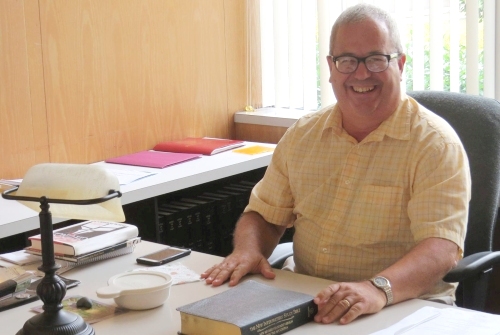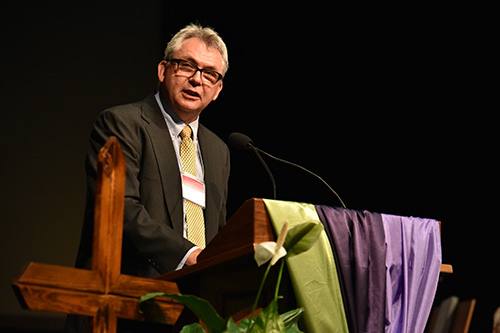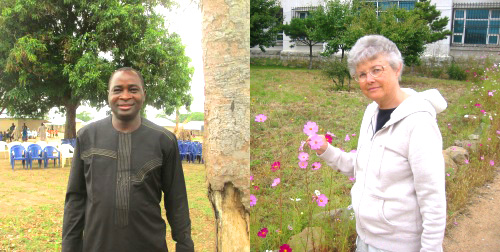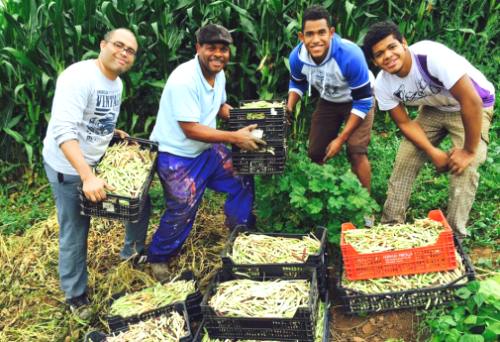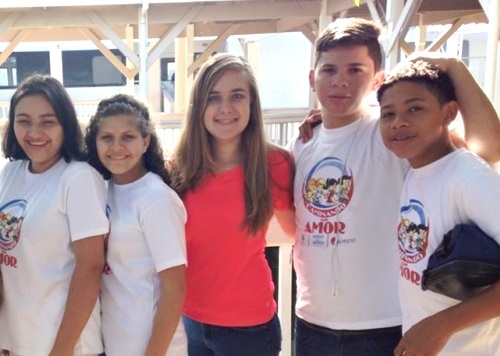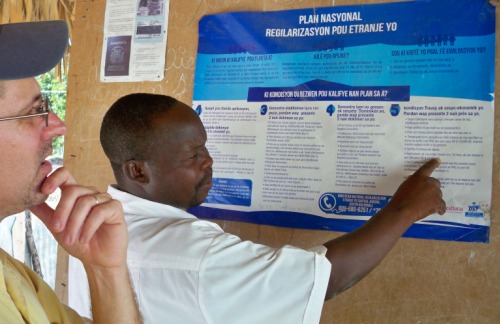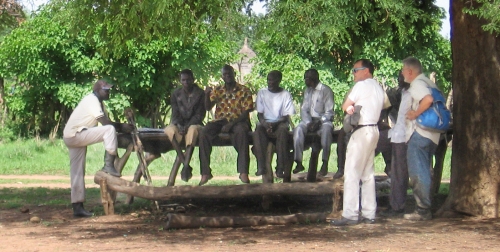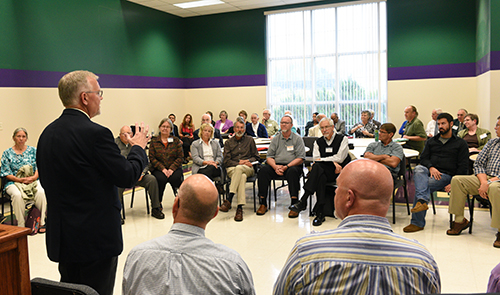
David Steele speaking with the group at the
Atlantic Northeast District Listening Session.
Photo by Glenn Riegel
By David Steele, general secretary
“May the God of hope fill you with all joy and peace in believing, so that by the power of the Holy Spirit you may abound in hope”(Romans 15:13).
My first 100 days as general secretary have come and gone. These first weeks have been exhilarating, challenging, and joy-filled. Assessment, questions, review of past board and committee minutes, and many meetings have filled my days. What has been and will continue to be central in my work and ministry has been listening—listening to staff and you, the church. From the hallways and meeting rooms of the General Offices and Brethren Service Center to the listening sessions being held across the denomination, I am learning much. I count it a privilege to meet with you to hear your hopes, passions, and concerns, and I look forward to many more listening opportunities as I continue to schedule listening sessions in other districts.
What am I learning from your sharing? We are passionate about the Church of the Brethren and our common ministries of service, mission, discipleship, and evangelism. Yet, we are also distracted by dwindling numbers and whether we will split over our diverging or opposite views related to human sexuality and same-gender marriage. Many of your hopes have been centered in a desire for unity, reconciliation, and focusing on what unites us. Much of your sharing can be taken at face value; however, for some our desire for unity and staying together are tied to certain outcomes.
The issues we face as a church will not go away. Let’s not kid ourselves. Given our diversity, there is no decision that we can make about a social issue that will satisfy all of us. And when we do make a decision about a social issue, it will likely be replaced by another, and another, and another.
Being the church is messy. It always has been. I have always appreciated the diversity of the church and the opportunities and challenges such diversity offers. In 1 Corinthians 12:12 we read, “The body is one and has many members, and all the members of the body, though many, are one body.” Each part of the body is essential and cannot be denied its place in the body. “God arranged the members in the body, each one of them, as he chose” (12:18).
I believe we must work together as one body—the body of Christ—to attend to the issues before us and those that we will face in the future. Our rich diversity provides us the ability to speak to a very complex and diverse world and model another way of living—the way of Jesus. Our working together, despite our differences, is not a denial of our convictions, but an acknowledgment of our conviction that Jesus is central in our lives and that we are part of one body in Christ. Sure, it is easier to seek out and gather with those who think and believe like us, but where would be our sense of smell, sight, ability to walk, to touch? As one dear brother said in one of the listening sessions, “I need those of you calling me to purity equally as much as I need those calling me to grace and compassion.”
As we step into this new year, I am committed to our common struggle together as the body of Christ. In the midst of distractions, it has been most exhilarating in my first 100 days to experience firsthand the tireless efforts of staff and leaders to be the church. Mission work around the globe, disaster response ministries, workcamps for youth, discipleship ministries and working with congregations in efforts of vitality and evangelism, intercultural ministries, church planting coaching and support, and planning for Christian Citizenship Seminar, Young Adult Conference, and Inspiration 2017 (National Older Adult Conference)and the list could go on.
We are called to another way of living, a way that looks much different from the world around us. I invite you to support and join in our mission and ministry—to be the church. Being the church is where our body finds its unity and strength through Jesus.
Learn more about the ministries of the Church of the Brethren at www.brethren.org or support it today at www.brethren.org/give .


